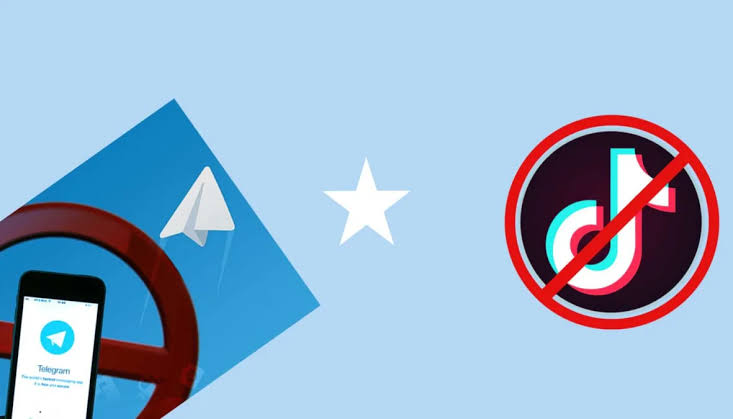The Somalian government banned TikTok, Telegram, and 1XBet in order to stop people from being rude and violent. In a public statement on X (which used to be Twitter), the government told domestic ISPs to block the above sites.
Jama Hassan Khalif, Somalia’s Minister of Communications and Technology, says that ISPs have until Thursday (August 24) to put the ban into place. It said that civil action would be taken if they didn’t follow the rules.
Read also: Kenyans turns down request to ban TikTok
This order is meant to stop TikTok and Telegram from spreading more offensive and extremist material. Since Somalia is a religious country, the government wants to stop TikTok from sharing information that is against the law.
Al-Shabab is a terrorist group that is supported by Al-Qaeda. Because of this, the East African country banned Telegram. The government said that the terrorist group used Telegram to make films, send out news releases, and interview commanders.
By stopping Telegram, the Somalian government hopes to win the long-running war.
Gambling is forbidden in Somalia; hence, 1XBet was banned. Casinos, lotteries, and sports betting are gambling under Sharia law.
The ban has garnered acclaim and criticism from X users. @Saido0319 and @abass_harmonic tweeted, Mashallah, that is a fantastic step forward” and “Good move!” At the highest level of tyranny, @CabdifataaxMax criticized the command. Without prohibiting these networks, you can restrict or monitor all indecent or immoral activities.”
Somalia joins Africa in internet and social media restrictions.
Access to social media has been limited by many African countries at different times and for different reasons. In Senegal, the government said it was to stop the rival party PASTEF (Patriotes Africains du Sénégal Pour le Travail, l’Éthique, et la Fraternité) from spreading propaganda.
In Guinea, the order to shut down the internet was also political. It was done to stop a protest against the government. On March 6, after a jailbreak, the Mauritanian government cut off access to the internet.
Like Somalia, the leaders of the above countries have been criticized a lot for their choices. Access to social media is something that the UN says is a human right. And even though limiting access to social media might be a good idea, it has many negative effects.
One of these is the economy. Due to the large number of users, which means possible customers, many businesses run on social media. When something goes wrong, businesses and the market both lose money. Take Nigeria, where the shutdown of Twitter cost the country $546,500,000,000.
